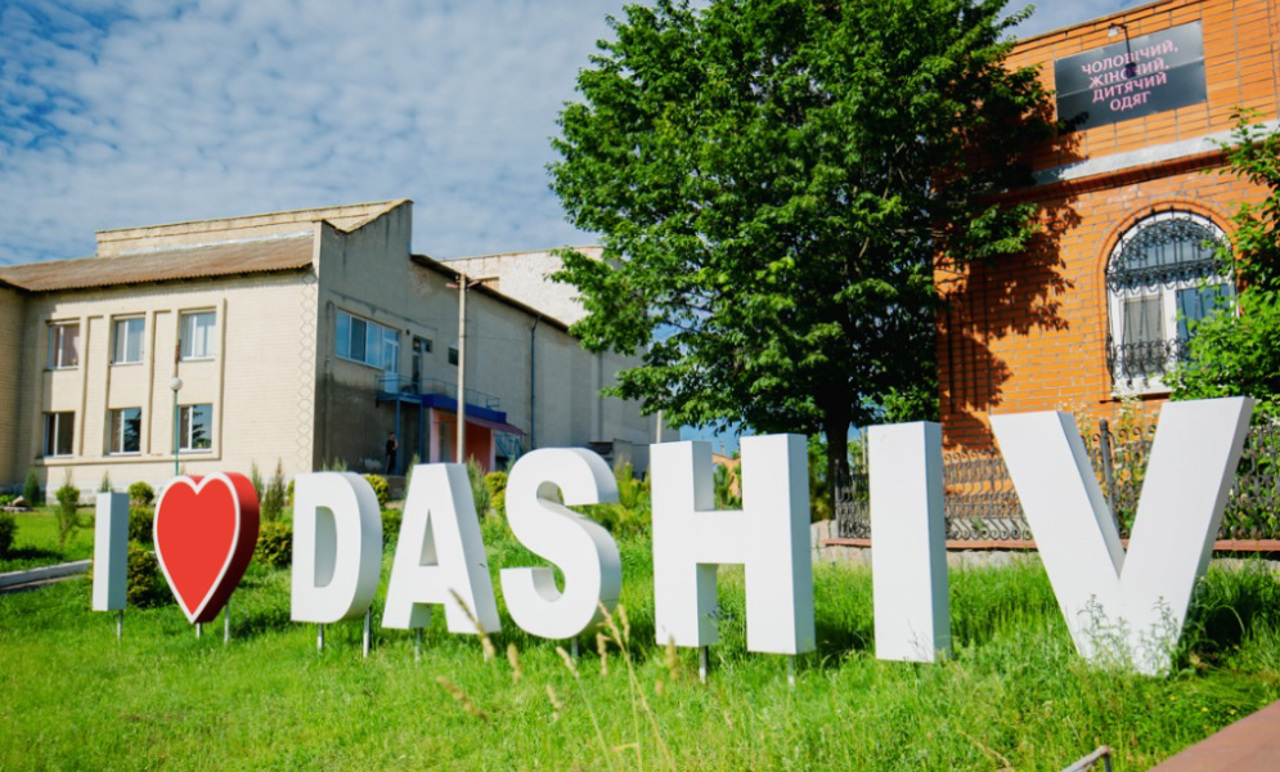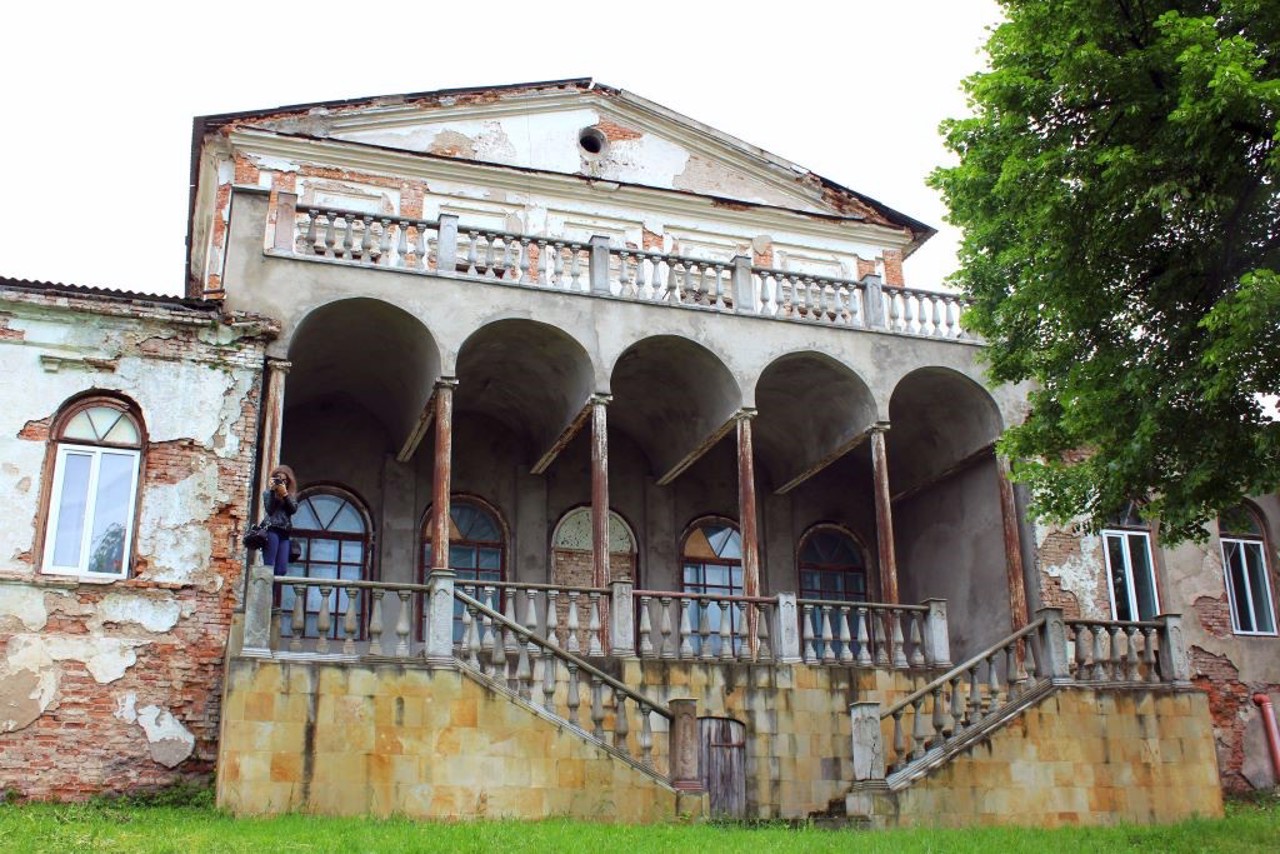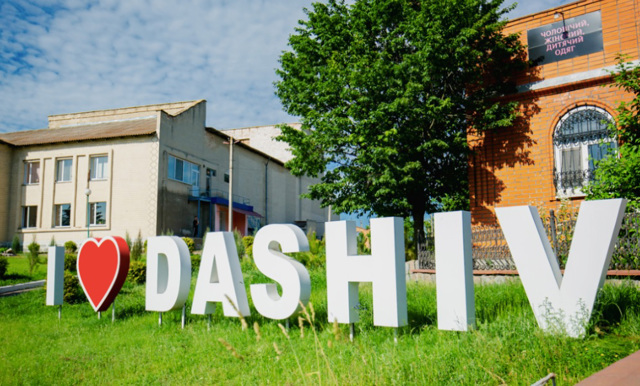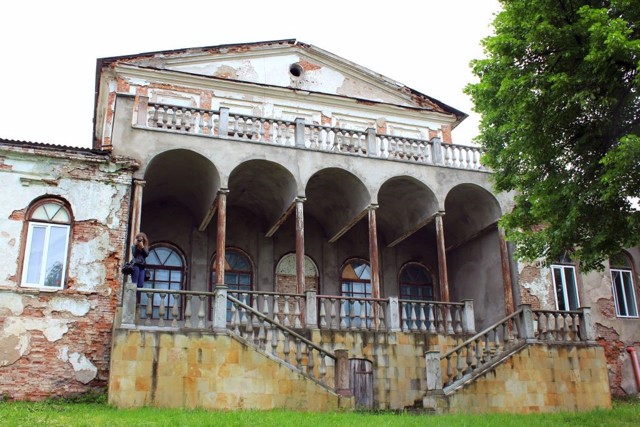Functional temporarily unavailable
General information about Dashiv
Town Dashiv is located on the banks of the Sob River, 25 kilometers north of Haisyn. Administratively, it is part of the Haisyn district of Vinnytsia region.
It was first mentioned in the 15th century, when there was a castle surrounded by earthen ramparts. In the 16th century, Janusz Zbarazky rebuilt and strengthened the castle, making it his residence. In the 17th century, Dashiv was the craft center of Podillia. During the War of Liberation, under the leadership of Bohdan Khmelnytskyi, Dashiv Castle was captured by the Cossacks, a Cossack hundred sto ...
Town Dashiv is located on the banks of the Sob River, 25 kilometers north of Haisyn. Administratively, it is part of the Haisyn district of Vinnytsia region.
It was first mentioned in the 15th century, when there was a castle surrounded by earthen ramparts. In the 16th century, Janusz Zbarazky rebuilt and strengthened the castle, making it his residence. In the 17th century, Dashiv was the craft center of Podillia. During the War of Liberation, under the leadership of Bohdan Khmelnytskyi, Dashiv Castle was captured by the Cossacks, a Cossack hundred stood here.
After the period of Turkish rule in Podilla, Dashiv changed owners several times. In 1764, the wooden Michael's Church was built. In 1787, Joseph Vincent Plater-de-Broel received the Polish king Stanislaus-August Poniatowski here.
In the last years of the 18th century, the town passed to the Polish magnate Volodymyr Potocki, the son of the owner of Tulchyn Stanislav-Szchensny Potocki. During the Polish uprising in 1831, a battle between the Polish insurgent troops and the Russian army took place near Dashiv.
In the middle of the 19th century, industry began to develop - a sugar factory and a water mill were built, which have survived to this day. In 1850-1887, the Potocki family built a luxurious palace with outbuildings and a stable in Dashiv. Currently, a boarding school is located in the manor.
Велике селище Дашів розташоване на берегах річки Соб в 25 кілометрах на північ від Гайсина. Адміністративно входить до складу Гайсинського району Вінницької області.
Вперше згадується в XV сторіччі, коли тут знаходився замок, оточений земляними валами. В XVI столітті Януш Збаразький перебудував і зміцнив замок, зробивши його своєю резиденцією. В XVII столітті Дашів був ремісничим центром Поділля. Під час Визвольної війни під керівництвом Богдана Хмельницького Дашівський замок захопили козаки, тут стояла козацька сотня.
Після періоду турецького пануванн ...
Велике селище Дашів розташоване на берегах річки Соб в 25 кілометрах на північ від Гайсина. Адміністративно входить до складу Гайсинського району Вінницької області.
Вперше згадується в XV сторіччі, коли тут знаходився замок, оточений земляними валами. В XVI столітті Януш Збаразький перебудував і зміцнив замок, зробивши його своєю резиденцією. В XVII столітті Дашів був ремісничим центром Поділля. Під час Визвольної війни під керівництвом Богдана Хмельницького Дашівський замок захопили козаки, тут стояла козацька сотня.
Після періоду турецького панування на Поділлі Дашів кілька разів змінював господарів. В 1764 році була побудована дерев'яна Михайлівська церква. В 1787 році Юзеф Вінцент Платер-де-Броель приймав тут польського короля Станіслава-Августа Понятовського.
В останні роки XVIII століття містечко перейшло польському магнату Володимиру Потоцькому, сину господаря Тульчина Станіслава-Щенсного Потоцького. Під час польського повстання в 1831 році при Дашеві відбулася битва польських повстанських військ з російською армією.
В середині XIX століття почала розвиватися промисловість - був побудований цукрозавод і водяний млин, що збереглися до наших днів. В 1850-1887 роках Потоцькі звели в Дашеві розкішний палац з господарськими будівлями та стайнею. В даний час в садибі розміщена школа-інтернат.
Сплануй своє перебування у Dashiv
What to see and where to go in Dashiv
Tourist attractions and museums of Dashiv
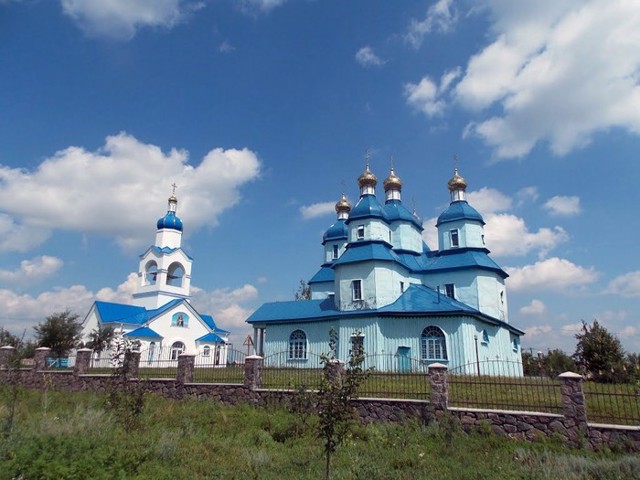
Saint Michael's Church
Temple , Architecture
The wooden church of Saint Michael was built in Dashiv in 1764 under Count Plyater.
It is located on the opposite bank of the river from the palace, in the part of the village called Stary Dashiv.
This bright blue five-headed temple is considered one of the best works of the Podillya school of wooden architecture. In the interior - an oil painting of the 19th century.
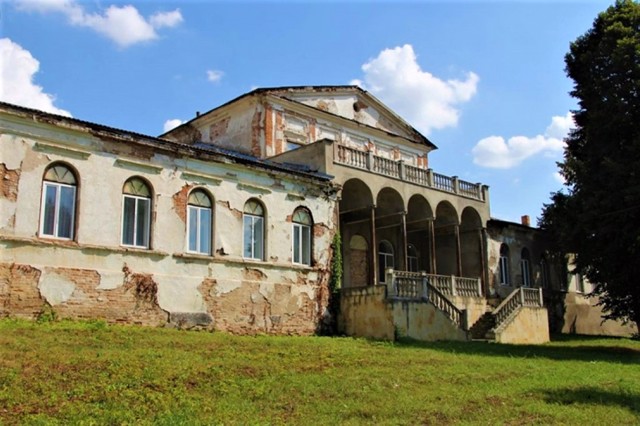
Potocki Palace
Palace / manor , Architecture
The manor of the representatives of the Potocki count family in Dashiv is located in a picturesque place above the rapids of the Sob River.
In the 1850s, the Dashiv palace was rebuilt in its current form by Vlodzimezh Potocki, the grandson of the owner of Tulchyn and Uman, Stanislav Shchensny Potocki. The river with a bridge and a dam were part of the composition of the palace park, which is partially preserved in the western part of the manor.
The ensemble consists of a palace and stable buildings. The Dashiv Palace is made in the forms of late classicism. On the park facade overlooking the river is an open loggia with cast iron columns. The stables are built of granite and brick and are located across the street from the palace.
Currently, the Potocki estate in Dashiv houses the Dashiv Special General Educational Boarding School.
Reviews Dashiv
Geographical information about Dashiv
| {{itemKey}} | {{itemValue}} |
|---|---|
| Region |
Vinnytsia |
